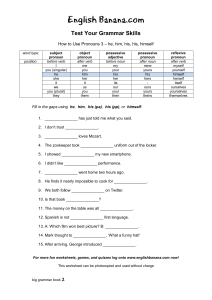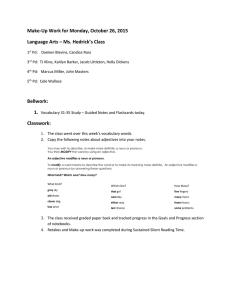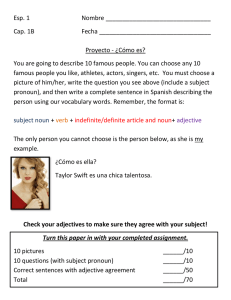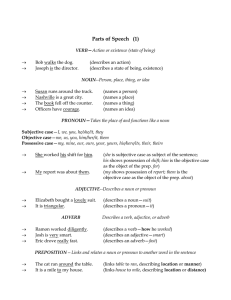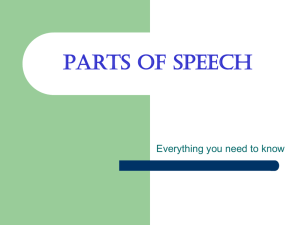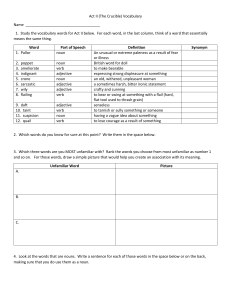Grammar Tips
advertisement
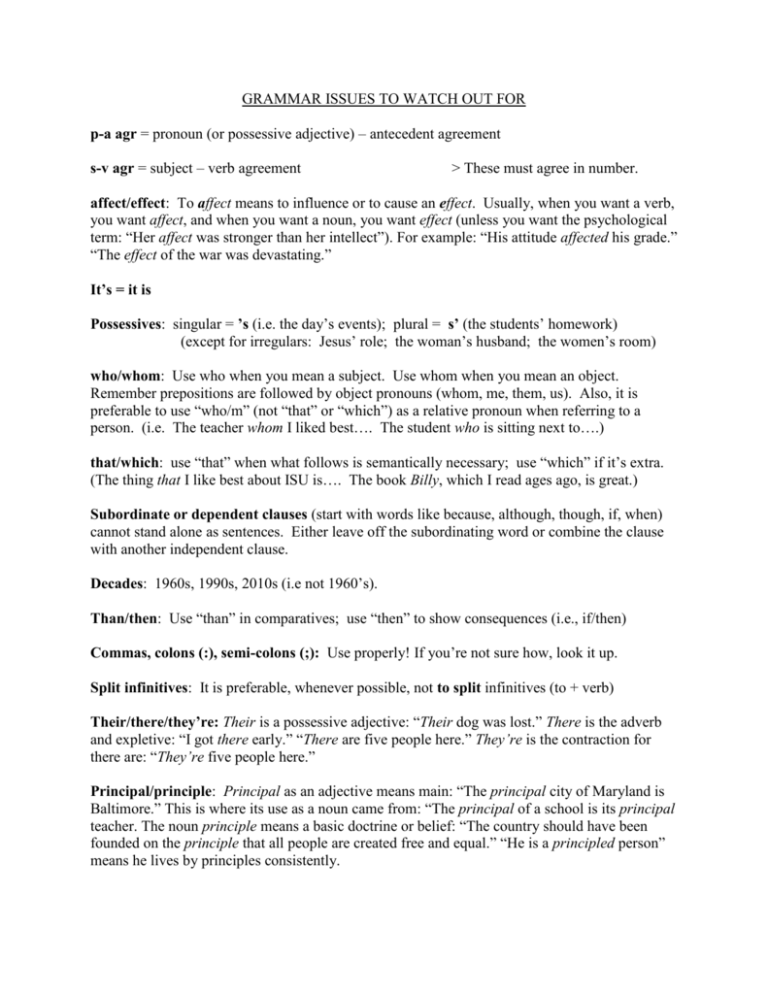
GRAMMAR ISSUES TO WATCH OUT FOR p-a agr = pronoun (or possessive adjective) – antecedent agreement s-v agr = subject – verb agreement > These must agree in number. affect/effect: To affect means to influence or to cause an effect. Usually, when you want a verb, you want affect, and when you want a noun, you want effect (unless you want the psychological term: “Her affect was stronger than her intellect”). For example: “His attitude affected his grade.” “The effect of the war was devastating.” It’s = it is Possessives: singular = ’s (i.e. the day’s events); plural = s’ (the students’ homework) (except for irregulars: Jesus’ role; the woman’s husband; the women’s room) who/whom: Use who when you mean a subject. Use whom when you mean an object. Remember prepositions are followed by object pronouns (whom, me, them, us). Also, it is preferable to use “who/m” (not “that” or “which”) as a relative pronoun when referring to a person. (i.e. The teacher whom I liked best…. The student who is sitting next to….) that/which: use “that” when what follows is semantically necessary; use “which” if it’s extra. (The thing that I like best about ISU is…. The book Billy, which I read ages ago, is great.) Subordinate or dependent clauses (start with words like because, although, though, if, when) cannot stand alone as sentences. Either leave off the subordinating word or combine the clause with another independent clause. Decades: 1960s, 1990s, 2010s (i.e not 1960’s). Than/then: Use “than” in comparatives; use “then” to show consequences (i.e., if/then) Commas, colons (:), semi-colons (;): Use properly! If you’re not sure how, look it up. Split infinitives: It is preferable, whenever possible, not to split infinitives (to + verb) Their/there/they’re: Their is a possessive adjective: “Their dog was lost.” There is the adverb and expletive: “I got there early.” “There are five people here.” They’re is the contraction for there are: “They’re five people here.” Principal/principle: Principal as an adjective means main: “The principal city of Maryland is Baltimore.” This is where its use as a noun came from: “The principal of a school is its principal teacher. The noun principle means a basic doctrine or belief: “The country should have been founded on the principle that all people are created free and equal.” “He is a principled person” means he lives by principles consistently.





